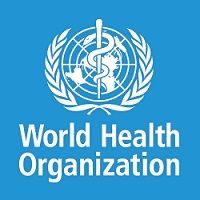WHO Guidelines on Evaluating Biosimilars Expand to Monoclonal Antibodies
In an effort to address unmet needs related to the accessibility of biosimilars globally, the WHO updates the guidelines to include more therapies in the category.
World Health Organization (WHO)

The World Health Organization (WHO) shared revised guidelines on biosimilars aiming to improve access to safe and effective products. Based on the latest and previous revisions, these guidelines incorporated multiple sources for consultation, including stakeholders and the broader public.
Hye-Na Kang, World Health Organization, Access to Medicines and Health Products, and investigators published an article detailing the initiative for improving accessibility of biosimilars by putting a greater emphasis on optimizing the quality and efficiency of in vitro assessment.
"Lack of access to specialty biological products is an unmet medical need in many countries," investigators wrote. "With a view to mitigate this and enable a regulatory framework, which is one of the many contributory factors for this situation, WHO has established global standards (i.e., written guidelines and international reference materials) to ensure the quality, safety, and efficacy of biological products throughout their life cycle and provided tremendous efforts toward facilitating the implementation of these standards."
Identifying Gaps in Biotherapeutic Evaluation
Revisions of the guidelines established on biosimilars in 2009 by the WHO, prompted technical developments and an increase in emerging scientific evidence and experience surrounding biosimilar evaluation. By reassessing these processes, opportunities to allow further flexibility in regulatory requirements were brought to light.
"While efforts to date have contributed to increased availability and better access to biotherapeutics, including biosimilars, huge gaps still remain, with lack of product access identified as a problem in many countries," investigators wrote.
Biosimilars are granted approval with the demonstration of their ability to achieve similar quality, safety, and efficacy as the reference biotherapeutic product. As opposed to focusing on innovator products, investigators suggested that better access to affordable biosimilars that are already approved could expand the options for patients with debilitating conditions that would benefit them.
Updates & Revisions to Biosimilar Guidelines
The definition of "biosimilar" received updated clarifications that specify it as a "biological product that is highly similar in terms of its quality, safety, and efficacy to an already licensed reference product (RP)," to refrain from misuse of the globally accepted term and align terminology worldwide.
In 2009, the term was formerly referred to as a "similar biotherapeutic product (SBP)" which was defined as "Biotherapeutic product that is similar in terms of quality, safety, and efficacy to an already licensed reference biotherapeutic product (RBP)."
Another key update addressed the expansion of scope and application of guidelines. In addition to incorporating the the revised term, the aim was to include "reference product" and its meaning, stated as "apply to biological products that can be well-characterized, such as recombinant DNA–derived therapeutic peptides and proteins. Some of the principles provided in these guidelines may also apply to low-molecular-weight heparins and recombinant analogs of plasma-derived products."
With these revisions, the biosimilar category was broadened to allow additional products to meet inclusion criteria that previously hadn't.
"This is significant as it now aligns and harmonizes the terminology for this category of products," investigators explained. "Low-molecular-weight heparins and recombinant analogs of plasma-derived products are included in the scope, but vaccines and plasma-derived products are currently excluded. Monoclonal antibodies that are used for the prevention of infectious diseases (e.g., palivizumab) can be evaluated as biosimilars by using the same principles described in the WHO guidelines."
The article "WHO guidelines on biosimilars: Toward improved access to safe and effective products" was published in The New York Academy of Sciences.